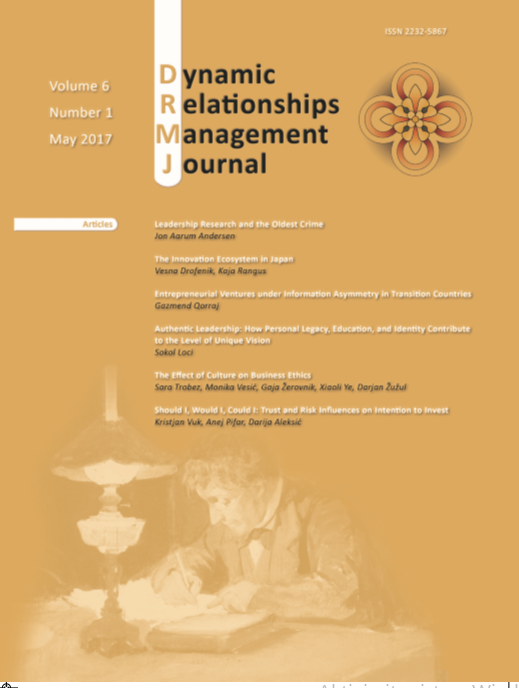The only thing better than the contents of the latest issue of the Dynamic Relationships Management Journal, which I'm Editor-in-Chief of, is its fresh new look. Check out all the open access papers here (covering a wide variety of topics ranging from leadership, innovation, entrepreneurship, culture and ethics, risk and trust) and the cover below. Special thanks to our new graphic designer, Patrick Erjavec - Eklipsa. And be sure to submit your paper - next issue is scheduled for November!
|
Our paper on knowledge hiding, cultural intelligence and individual and team creativity, co-authored by Sabina Bogilović, myself and Miha Škerlavaj was just published in the latest issue of the European Journal of Work and Organizational Psychology. Special congrats to the first author, Sabina, on driving the project forward! You can find the abstract below:
Culturally diverse colleagues can be valuable sources for stimulating creativity at work, yet only if they decide to share their knowledge. Drawing on the social exchange theory, we propose that cross-cultural interactions among individuals from different national backgrounds can act as a salient contingency in the relationship between knowledge hiding and creativity (individual and team). We further suggest, based on the social categorization theory (e.g., the categorization process of “us” against “them” based on national differences), that cultural intelligence enhances the likelihood of high-quality social exchanges between culturally diverse individuals and, therefore, remedies the otherwise negative relationship between individual knowledge hiding and individual creativity. Two studies using field and experimental data offer consistent support for this argument. First, a field study of 621 employees nested among 70 teams revealed that individual knowledge hiding is negatively related to individual creativity and that cultural intelligence moderates the relationship between knowledge hiding and creativity at an individual level. A quasi-experimental study of 104 international students nested in 24 teams replicated and extended these findings by implying that individual knowledge hiding is also negatively related to team creativity. We discuss the implications for practice and future research. |
Matej Černe, PhD
Researcher, lecturer and consultant on the field of management and organization. Archives
August 2023
Categories |

 RSS Feed
RSS Feed
